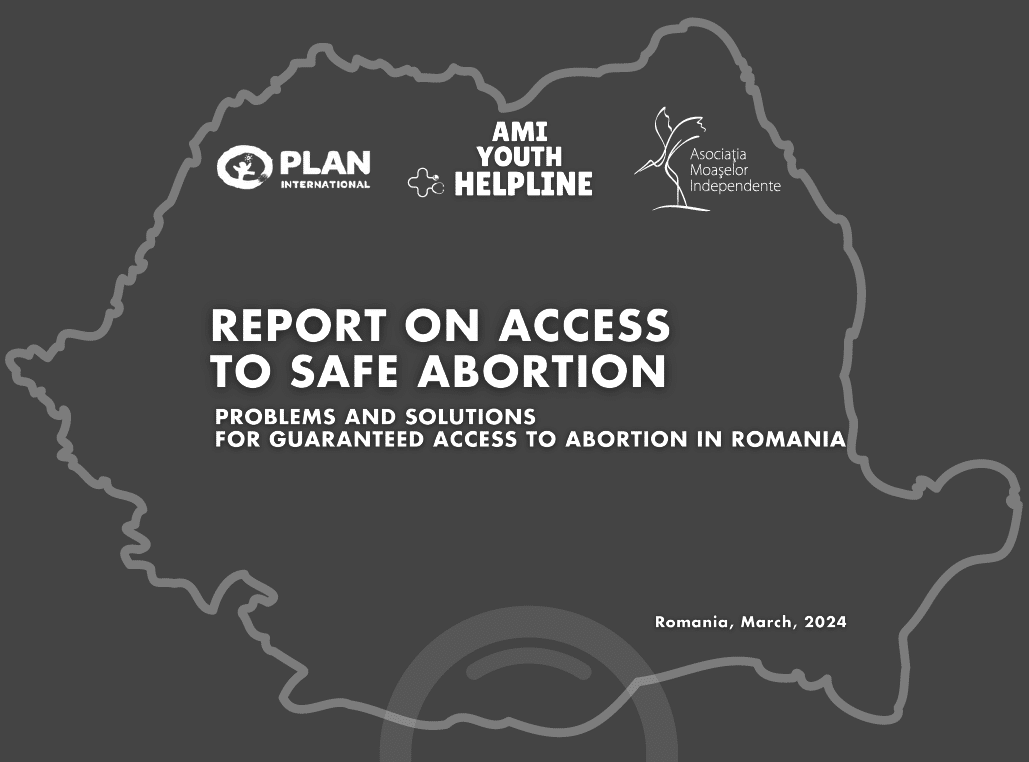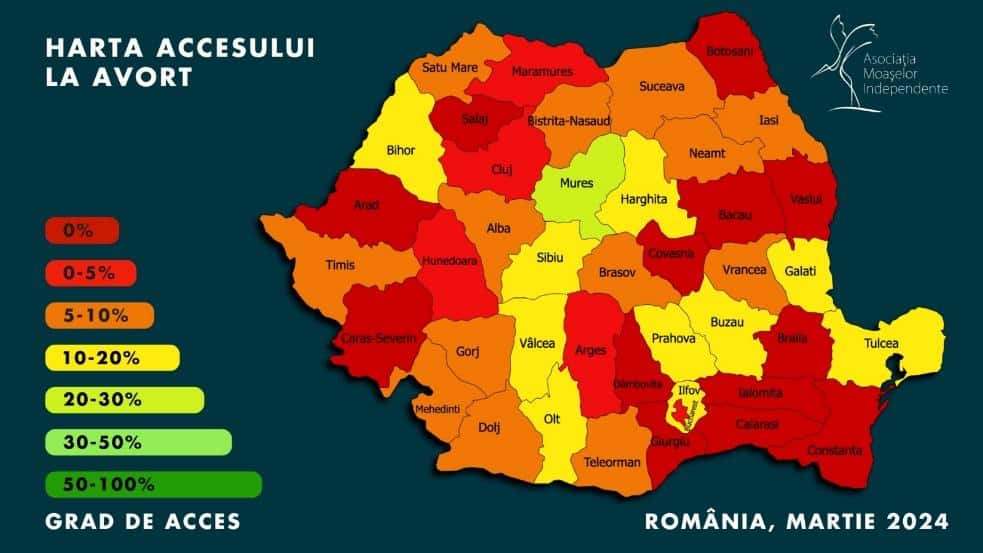
Reviewed by Daniela Draghici
The Independent Midwives Association conducted a telephone survey from November 2023 to February 2024, in 1,000 clinics and hospitals in Romania with obstetrics and gynaecology departments, retracing the route that any patient takes who needs an abortion-on-demand service. The facilities were asked about the existence of the service, the reasons for refusal if the service is not provided, the type of abortion(s) performed, the number of weeks up to which abortion is offered, the type of anaesthesia and procedure used for surgical abortion, the prices, information on the schedules of doctors providing medical abortion services, and details of the youngest age at which they accept patients for abortion.
This is what the map of access to abortion in Romania looked like in March 2024, based on the findings of how many hospitals and clinics in each province were providing services and to what extent:

In only one county (Mures) in the whole country, the light green one, did more than 20% of hospitals with obstetrics & gynaecology departments offer the abortion procedures required by law.
The study found that in many counties, no hospitals offered this service and in even more, the proportion of clinics offering this service was at most 5% of the total. With some astonishing answers given on the telephone to the researchers. With many hospital managers saying they had banned this service in their hospitals (i.e. their estate).
As shown by data collected by Romanian civil society organisations fighting for women’s rights (Independent Midwives Association, FILIA Centre), in recent years more and more public hospitals do not provide any kind of abortion care for women or access to this service. In some cases, this is a strategy to send women to clinics where the costs are much higher. Or to pregnancy crisis centres supported and funded by religious groups who have an aggressive intervention strategy, discouraging women by disseminating false information or sometimes violent religious messages.
The report of this research, conducted by the Independent Midwives Association, was presented on 4 March 2024 at the University of Bucharest, during a roundtable organised by the Centre for Equal Opportunities Policies and Master Equal Opportunities Policies in partnership with the Gender Equality Plan, University of Bucharest.
More information from this report will be available next week.



